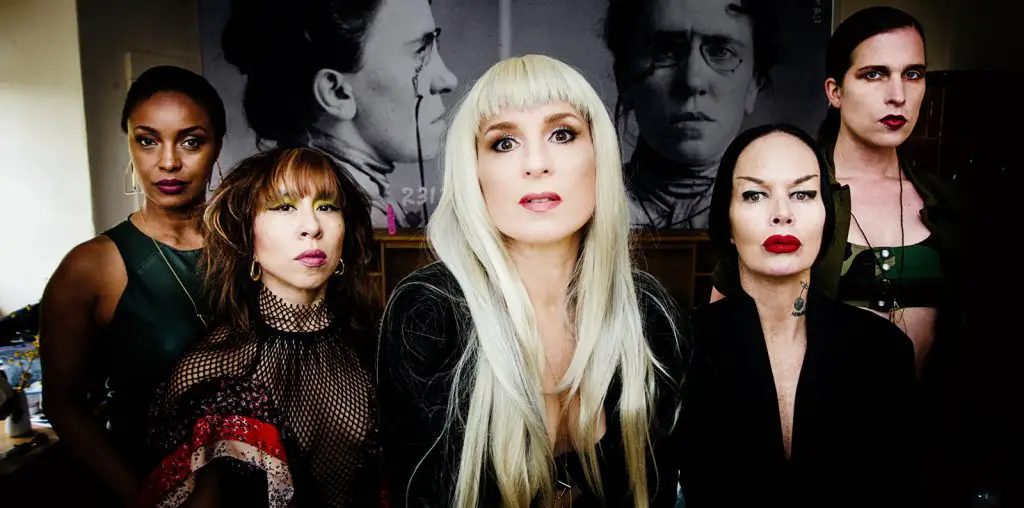
Dustin Hoffman plays The King, a sleazy crime boss in James Foley’s Confidence. We caught up with Dustin last January in Park City to discuss his outlook on acting, what Sundance means to him and…well, let’s just say that Charlie Babbitt wouldn’t approve.
Sum up in a word what Sundance means?
I’ve never been so gassy. Am I alone in this? Are you farting more and differently than you ever have in a different area? I want to find out about, physiologically, what happens when you’re 8,000 feet up. Your body starts tooting. Am I crazy? I know you know. Gas…a lot of gas. It’s interesting gas, too.
That’s the word…
Gassy, man. Gassy. Nose bleeds a little bit. Headaches maybe….
Ed Burns described working with you as like playing hoops with Michael Jordan. How do you respond to something like that?
Well, he’s being modest because he’s leaving himself out of it. You can’t play one-on-one by yourself, I mean, he threw it back. I don’t think actors like anything better than to play ping pong or to assimilate what jazz musicians do. You have the notes, you have the melody and then you riff in there and sometimes you meet other actors where, if you were musicians, you could be in the same group.
They’re saying that even when you were not on camera, you were still doing the scenes to help them out.
I’ve seen actors complain about their campers. It’s not big enough or something. Or they sit in their campers and then they’re called and they have to wait a half hour. I frankly don’t understand it. There are very few professions were everyone in the unit of the work that you’re a part of are doing the very best work they can do and it’s not just a job. And there’s an energy, I think in the crew, on a set, whatever it is like this, that has that energy and I don’t know a better place to be. It doesn’t matter whether you’re in front of the camera or not because your mind is going all the time. I’m watching other actors. I’m getting ideas either for me or for them. Actors, I always thought, are like convicts in a way because those old movies, you know, where they talk out of the side of their mouth and say, “Shh! Here comes the screw, stop talking.” Well, actors are like that.
“So, how did you like the last take?”
“Well, I think for this next take the director wants me to have more energy.”
“Screw him, just say…oh…here he comes. Shh!”
You give each other stuff and some nice directors let you do it and want you to do it, most of them do. I just like the energy and I love to work.
In your career you’ve played a protagonist, you’ve played antagonist, some heavies, which is more fun?
Andy Garcia and I were talking about this and the protagonist is usually the less interesting role because it’s mostly from the studio point of view…it’s a generic role. The leading man, the good guy, or the hero really doesn’t exist in real life. Nobody is flawless. There isn’t anybody that doesn’t have their own demons. There isn’t anybody that doesn’t carry a lot of pain with them and the pain causes them to interact in different ways and for some reason, in movies, that dimension of the protagonist many times is left out because, I guess, we like to go to the movies and see an idealization of what we’re not.
But you never really play clichés. You seem to always play real people with all kinds of layers and all kinds of depths and so, when you’re preparing for any of your parts, do you get your ideas from other people? From family? Just other actors?
Yeah, everything. Everything. There’s no such thing as a character, I don’t think. It’s just an orphic creation of a writer and you take on certain givens, but you’re behind that and to me it’s always like going in the closet, you know, you put on clothes and it makes you feel a certain way. You’re not making yourself feel that way. This makes you feel a certain way and your talking to me makes you act a certain way. You’re not going to be the same person, I suspect, if you’re talking to your girlfriend, or your mother, or your grandmother and you’re not going to be the same person if you’re naked, or you’ve got on bathing trunks, or you just got up. It’s all those behavioral things bringing out a different aspect of you, but you’re still you. So those accoutrements, those costume things that you put on and the people after that is what we call the character.
When you’re in Park City here for the festival, are you going to be doing anything other than festival events?
Gas. A lot of gas. I can guarantee you that.
I’ve seen three films. We don’t get to see a lot of stuff because we have to promote our own film. I saw Raising Victor Vargas. I saw this thing called “The Whale Rider,” by this woman director from New Zealand with this 12-year-old kid giving a performance that’s exquisite. And those are two films that I would just highly, highly recommend and that’s the unique thing about a place like this is, you ain’t going to see those films in a large distribution even if they are picked up. They’re going to play in one little movie house and we’re not going to hear about it. You can’t afford to advertise it like all that big product.
